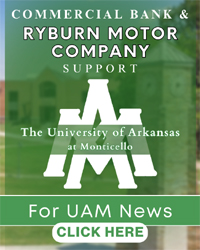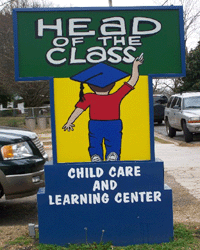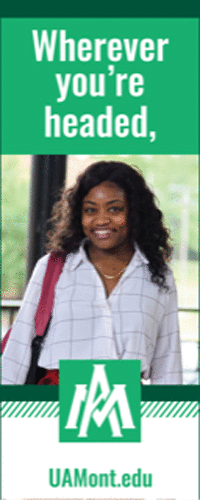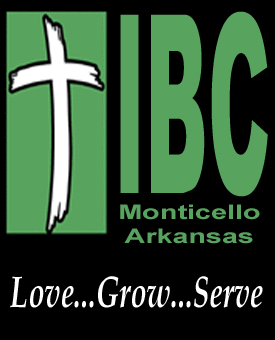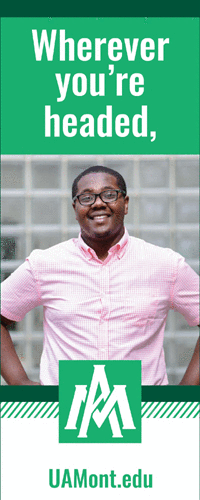Chris Sims Is UAM’s Outstanding Teacher
June 25th, 2018 by UAM News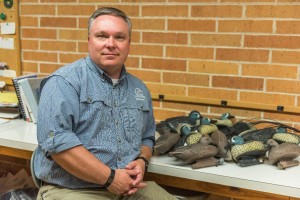 When Chris Sims was in high school, his father gave him some career advice. “If you become a teacher, I’m gonna kill you,” said James Sims. “Do something where you can make some money.”
When Chris Sims was in high school, his father gave him some career advice. “If you become a teacher, I’m gonna kill you,” said James Sims. “Do something where you can make some money.”
Chris Sims chuckles as he tells the story. The late James R. “Jimmy” Sims was a biology teacher at Austin High School in Decatur, Ala. His mother, Jane, was a fourth grade teacher at Lauderdale County High School in Rogersville, Ala., where Sims grew up. “My grandparents were teachers,” says Chris. “My wife’s a teacher. I have aunts and cousins who are teachers. I have a cousin at UT-Martin who’s a professor of ornithology, same as me. It’s all we’ve done.”
Fortunately for the University of Arkansas at Monticello, Sims chose not to take his father’s advice, at least not completely. “I didn’t become a public school teacher,” he says. Instead, he chose a different route to the classroom.
After earning a bachelor’s degree in professional biology from the University of North Alabama, Sims enrolled in graduate school at the University of Mississippi with plans to become a research scientist. “I had no intention of becoming a teacher, but to go through graduate school, you teach to make money to get your tuition waiver or stipend,” he explains. “And you know, it just kind of progressed from there. I realized I wasn’t bad at it. In fact, I thought I was pretty good at it.”
His colleagues at UAM would agree. Sims was recently selected to receive the Dan and Charlotte Hornaday Outstanding Faculty Award, presented annually to the university’s top faculty. “Students and faculty nominate you, so this is the ultimate honor,” he says.
Sims calls himself a traditional “chalk and talk” lecturer with a twist. “Somebody just spitting facts at you for an hour can be extremely dry,” he says. “You’ve got to find a way to make it a story. I think good teachers are good storytellers.” Sims typically teaches classes in human anatomy, physiology and ecology as well as a lab. His students represent a cross-section of academic disciplines ranging from pre-med to nursing to forestry. His biggest reward is hearing from his students two to four years after they graduate. “Hearing that something you did paid off for them, that makes it worth doing,” says Sims.
Sims gravitated toward biology, and to ornithology in particular, thanks to his late father. The birding trail at Joe Wheeler State Park on the Tennessee River in north Alabama is called the James R. Sims Birding Trail.
Sims minored in chemistry at North Alabama and after graduation in 1994 took a job with Intergraph Corporation, making circuit boards. The work was tedious and repetitious and Sims hated it. (He keeps a circuit board pinned to a bulletin board in his office to remind him of his current good fortune.)
Sims wanted to work with birds so he left Intergraph and enrolled in graduate school at Ole Miss with plans to pursue a master’s degree. When he interviewed with his graduate advisor, she told Sims to skip the master’s program and go straight to a doctorate. “I didn’t even know you could do that,” says Sims, “but that’s what I did.”
Sims received his Ph.D. in biology in 2002 and joined the UAM faculty the same year. Coming to Monticello was a natural for an avid duck hunter who calls his obsession with the sport “a terrible, terrible addiction.”
It was duck hunting that fostered a friendship between Sims and the late Dr. Robert H. “Bobby” Burch, a Monticello dentist and revered member of the community. It was a friendship that led Sims to create an endowed scholarship in the UAM Foundation Fund in his friend’s honor. “I met Bobby the first week I moved to Monticello,” says Sims. “He took lots of people hunting and he called me one day and asked if I wanted to go.”
Over the next few years, Sims and Burch developed a friendship and when Burch got sick, Sims spent more time with his friend in the duck blind. “He knew I was off during the Christmas break and knew I was available during the week if he wanted to go hunting,” says Sims. “That last year, I think we hunted 10 or more times, some days when he could barely get in and out of the boat. My Dad died at 52 years old of a brain tumor when I was in grad school. It was deja vu. Watching what his family went through, I had a real close connection to what was going on.”
When Dr. Burch died, Sims wanted to honor his friend and hunting companion and decided to create an endowed scholarship in his honor. The Robert H. Burch Endowed Scholarship in Waterfowl Research reached endowed status ($15,000) in three weeks and is now over $45,000 in three years. The award has been given twice.
“I’ll tell people until the day I die that I can win teacher of the year awards or any other honors, but I’ll be prouder of that when I die than probably anything I’ve ever done,” says Sims.
And UAM will be proud Sims chose not to heed his father’s advice.
Choose another article
Newer article: “Largest” Willow Oak Falls In Fridays Storm
Older article: UAM Releases 2018 Spring Semester Chancellor’s and Dean’s Lists


















